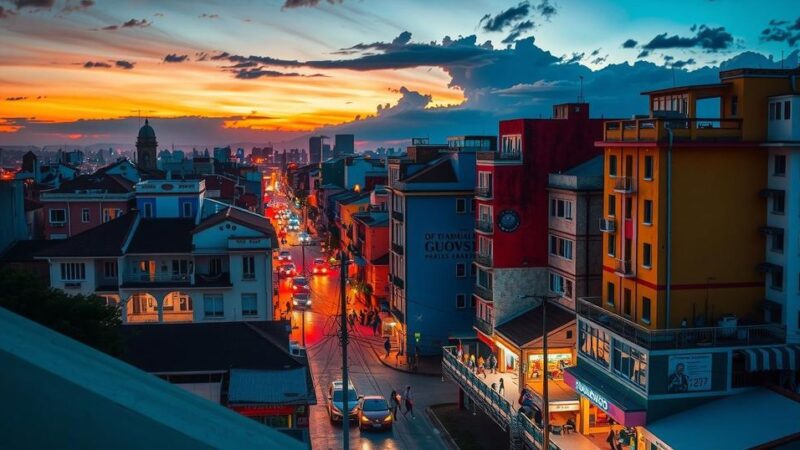Indigenous leaders from the Peruvian Amazon have voiced concerns at an international human rights hearing regarding oil and gas projects threatening their territory. They assert these projects violate their rights, damage the environment, and endanger uncontacted tribes. The Peruvian government maintains it respects human rights, though independent reports indicate ongoing exploitation of Indigenous lands, prompting appeals for international accountability.
Indigenous leaders from the Peruvian Amazon presented their concerns regarding oil and gas projects to the Inter-American Commission on Human Rights in a recent hearing held in Bogota, Colombia. They argue that these projects infringe upon Indigenous rights, endangering their land, health, and food security, contrary to international obligations for consultation with Indigenous communities. The delegation was represented by the Interethnic Association for the Development of the Peruvian Rainforest (AIDESEP), which highlighted the potential threats to uncontacted Indigenous groups and the specific impacts on Indigenous women.
During the hearing, the Peruvian government insisted that it is a democratic state that respects the law and guarantees human rights to all citizens. However, Julio Cusurichi Palacios, from AIDESEP’s Board of Directors, countered these claims by asserting that the government’s statements do not reflect the reality experienced by Indigenous peoples, including ongoing pollution and threats to uncontacted tribes. “The rights of Indigenous peoples are not being respected… oil and gas lots continue to be promoted,” he remarked to the Associated Press.
Recent findings highlight the government’s continued auctioning of Indigenous lands for oil and gas exploitation, with reports revealing that 75% of the Peruvian Amazon is covered by such concessions, often overlapping with Indigenous territories. Environmental lawyer Cesar Ipenza expressed concerns over the promotion of extractive activities in vulnerable areas, stating that the environmental damage is evident, yet the government claims all is well with oil and gas operations.
The Inter-American Commission has requested written responses from the Peruvian government focusing on protocols managing oil spills and supporting affected communities. Notably, recent joint reports have documented 831 oil spills occurring in the Amazon rainforest. Furthermore, Survival International indicated that there are at least 20 uncontacted tribes in Peru, whose vulnerability has intensified, especially with the recent encounters of uncontacted Mashco-Piro people with logging workers.
Indigenous organizations in Peru have sought redress in international forums due to a lack of justice within the country. Teresa Mayo, a Peru researcher for Survival International, noted that these organizations hope the Inter-American Commission will compel Peru to adhere to international laws, rather than neglecting inconvenient regulations.
In conclusion, the Indigenous leaders of the Peruvian Amazon have raised alarm over the government’s oil and gas projects, asserting that these violate their rights and threaten their communities. Despite government claims of adherence to human rights, evidence presented at the Inter-American Commission highlights ongoing environmental harm and risks to uncontacted tribes. The situation underscores the urgent need for international oversight to ensure compliance with Indigenous rights and environmental protections.
Original Source: www.newsday.com






